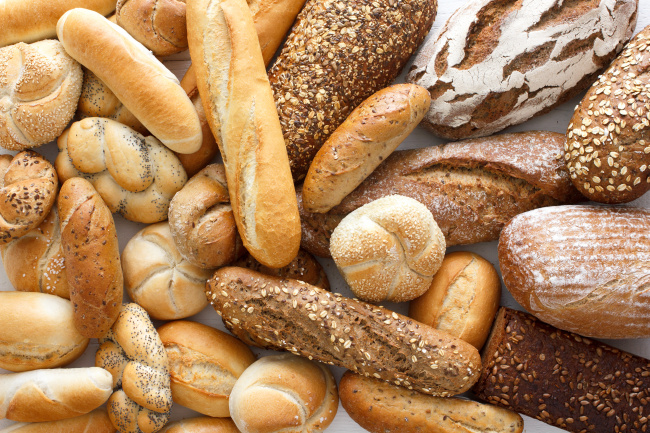For an increasing number of Koreans, rice and noodles are no longer the foundation of their meals.
A growing appetite for sandwiches and baked goods like cakes, pastries and doughnuts have made bakeries ubiquitous across Korea.
Wheat consumption has continued to grow in a country where traditionally a meal without rice was no meal at all. According to the Ministry of Agriculture, Food and Rural Affairs, the average South Korean ate 33.2 kilograms of wheat flour in 2016.

(123RF)
Meanwhile, rice consumption has been falling. According to Statistics Korea data, an individual ate slightly more than 61 kilograms of rice in 2016, just half that of 30 years ago and the lowest recorded.
“Although I cannot switch from rice to bread for all my meals, bread is definitely something that I cannot go without, as it is easier to grab and eat, not to mention, there are just bakeries on every street. It’s hard to avoid them,” said Kim Ki-jeong, a 42 year-old office worker in southern Seoul.
From small mom and pop bakeries located in markets or apartment complex arcades to big chain bakeries mass producing everything from confectioneries to baguettes or boutique bakeries only using organic ingredients, the bakery market here has enjoyed a vast boom and diversification, with consequent shifts in trends.
Recently, the rising trend is of posh foreign bakery chains, who have been aggressively taking advantage of Koreans’ hunger for bakery products and their penchant for all things trendy.
French chains Brioche Doree and Gontran Cherrier and New York-based Magnolia Bakery are among the overseas rivals vying to break the dominance of Korean bakery brands like Paris Baguette.
Among major Korean brands, SPC Group’s Paris Baguette has long been and is still the solid No. 1 in Korea, with a market share of almost 80 percent. The brand is followed by CJ’s Tous Les Jours, which accounts for about one-fifth. Crown Bakery of Crown Group, which also operates the Haitai snack brands, trails far behind.
Brioche Doree entered the Korean market in 2016, using ingredients directly shipped from France. Despite its relatively high price range from around 3,000 won ($2.80) to 5,000 won per pastry, people flock to the stores for their “authenticity.”
“It is definitely more expensive than a croissant sold at a local chain. But once you taste it, you will notice the difference right away (and) soon become addicted to this real, authentic taste of croissant (from the French bakery chains),” said Kim Jin-kyu, who says he often visits Brioche Doree.
Magnolia Bakery, which made its foray into the Korean market amid a banana pudding craze in 2015, has set a world record for selling 800,000 cupcakes in just 25 months from Seoul’s four stores, marking the largest sales volume in the 30 years of its history. It has 25 branches around the world.
Between such giant players, local and small artisan bakeries have also recently risen as hot spots for bread-lovers.
There is even a Facebook page dedicated to seeking and sharing artisan bakeries.
On the page “Bbangjisoollye,” a coined term for making a pilgrimage to famous artisan bakeries, people share information and feedback on their visits and choice picks.
“You must add this place to the list to taste Seoul’s most freshly baked warm and toasty bread,” one member on the page wrote, introducing his favorite bakery in Seoul.
“The intoxicating scent of freshly baked brioche, a warm, toasty, buttery scent is really hard to resist at this place,” wrote another member.
There are other boutique bakeries where the waiting list for a loaf can stretch as long as several months.
Kim Tae-ha, an honor chef of Bread Duck, a small boutique bakery located in Dongjak-gu, says the premium baked goods market is growing.
His unique 13-square-meter bakery sells popular treats combining Eastern flavors and Western techniques, such as adding red bean paste to German-style soft pretzels.
Kim also offered deliveries for those living in other regions, often packing at least 20 boxes of fresh baked goods every night to send them, although he stopped the service to ensure “freshness.”
“It’s an artisan, handmade product where the shelf life is short, so it is best for you to take it home and eat right away or the next morning,” he said.
By Kim Da-sol (
ddd@heraldcorp.com)





![[KH Explains] How should Korea adjust its trade defenses against Chinese EVs?](http://res.heraldm.com/phpwas/restmb_idxmake.php?idx=645&simg=/content/image/2024/04/15/20240415050562_0.jpg&u=20240415144419)
